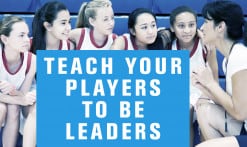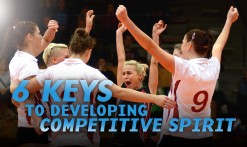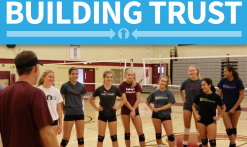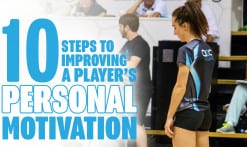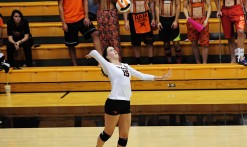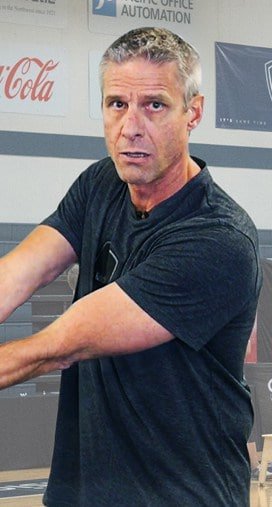- 345.7K Views
- 59 Followers
Seven hundred college wins is reason enough to listen to what Stephanie Schleuder has to say about training the mind for volleyball, but her credentials run deeper. In a career in which she served as head volleyball coach at the University of Minnesota, University of Alabama and Macalester College and was also president of the American Volleyball Coaches Association, Schleuder never just accepted that the way to do something is the way you've always done it. She tweaked and refined and reshaped her philosophy so she could grow as a coach while her athletes grew as volleyball players.
Interestingly, her biggest influence wasn't another coach but, rather, a professor of kinesiology - Dr. Joann Johnson - whom Schleuder took a class from during her junior year at the University of Minnesota Duluth. Dr. Johnson's specialty was motor learning, and her students absorbed the subject largely through experimentation - things like trying to write longhand while looking in a mirror.
"Being in her classes lit a fire under me," Schleuder says. "It got me interested in learning how to learn."
Schleuder applied that to volleyball, thinking deeply for many years about how she could best reach student-athletes in ways that would help them become better players and better people. It was often challenging. One time, a player got so annoyed with Schleuder that she threw her backpack at her. But Schleuder didn't give up on her. In fact, she learned from the incident. It made her realize that extreme frustration is often just an indicator of how serious an athlete is about wanting to become great.
In "Brain Training for Volleyball," Schleuder shares methods that have consistently worked for her in practice after practice, match after match, season after season. She covers teaching leadership, building trust, defeating distractions, encouraging a higher level of focus, coaching captains and much more. It's a great read, and it's also a valuable resource for coaches seeking ways to be better prepared for the upcoming season than they were for the previous season. read more...
Interestingly, her biggest influence wasn't another coach but, rather, a professor of kinesiology - Dr. Joann Johnson - whom Schleuder took a class from during her junior year at the University of Minnesota Duluth. Dr. Johnson's specialty was motor learning, and her students absorbed the subject largely through experimentation - things like trying to write longhand while looking in a mirror.
"Being in her classes lit a fire under me," Schleuder says. "It got me interested in learning how to learn."
Schleuder applied that to volleyball, thinking deeply for many years about how she could best reach student-athletes in ways that would help them become better players and better people. It was often challenging. One time, a player got so annoyed with Schleuder that she threw her backpack at her. But Schleuder didn't give up on her. In fact, she learned from the incident. It made her realize that extreme frustration is often just an indicator of how serious an athlete is about wanting to become great.
In "Brain Training for Volleyball," Schleuder shares methods that have consistently worked for her in practice after practice, match after match, season after season. She covers teaching leadership, building trust, defeating distractions, encouraging a higher level of focus, coaching captains and much more. It's a great read, and it's also a valuable resource for coaches seeking ways to be better prepared for the upcoming season than they were for the previous season. read more...
-
May 14, 2016
Bitching: The greatest threat to athletic progress
-
April 21, 2016
Teach your players to be leaders
-
February 28, 2016
6 keys to developing competitive team spirit
-
January 20, 2016
Trust-building strategies to promote team bonding
-
November 18, 2015
Rumzicken: Die größte Bedrohung des sportlichen Fortschritts
-
September 17, 2015
10 steps to improving a player’s personal motivation
-
August 22, 2015
Managing behaviors: Strategies to help players monitor themselves

